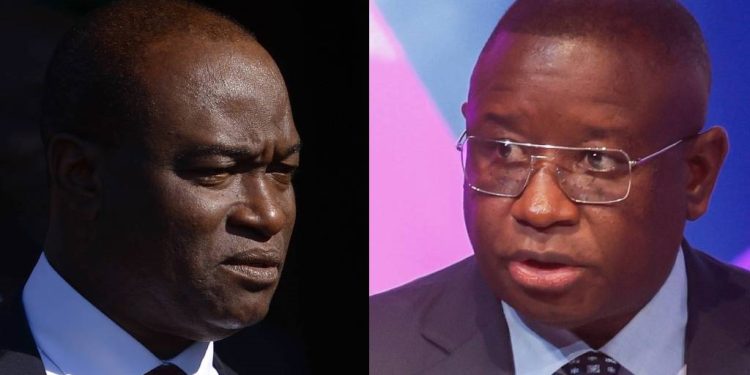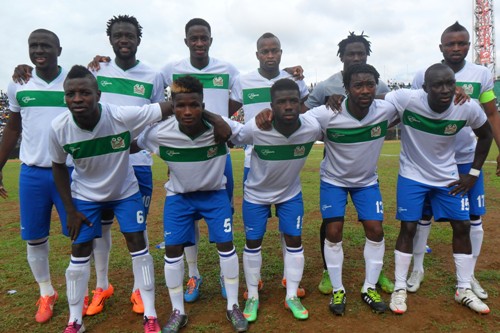For decades, many of the nation’s leaders have treated public office as a vehicle for personal enrichment rather than public service, prioritizing their political survival over the well-being of their constituents. This self-serving leadership has created a cycle of stagnation, economic struggle, and mistrust, robbing the people of the prosperity they deserve. Sierra Leoneans are left to wonder: will the country ever have leaders who are genuinely committed to national growth rather than their own interests?
Since gaining independence in 1961, Sierra Leone has witnessed a long line of leaders who entered office with promises of change but ultimately fell prey to the lure of personal gain. With each election cycle, new pledges to combat corruption, uplift communities, and build infrastructure are made, yet these promises are seldom fulfilled. Political office has become synonymous with an opportunity for self-advancement, allowing leaders to amass wealth, consolidate power, and secure their own future while the majority of citizens remain in poverty.
The desperation of Sierra Leonean leaders to hold onto power at all costs has led to several issues. National resources have often been channeled toward the interests of the powerful few, depriving the masses of opportunities to benefit from the wealth that lies within their own borders. This has led to a culture of disenchantment, where citizens have become skeptical of leadership, viewing politicians not as public servants but as opportunists driven by greed.
Sierra Leone is blessed with abundant natural resources, from diamonds to iron ore, gold, and timber. Yet, instead of leveraging these resources for national development, the country’s leaders have often treated them as personal assets. By making deals with foreign companies under questionable terms, political elites have allowed the country’s wealth to be extracted while yielding little benefit to the Sierra Leonean people.
In many cases, these deals have been brokered with minimal transparency, leaving the public in the dark about the exact nature of agreements. For instance, lucrative mining contracts are often awarded to companies that extract vast resources without adequately reinvesting in the country’s economy. Leaders profit from these arrangements through hidden kickbacks and partnerships, while communities surrounding these resource-rich areas face environmental degradation, loss of livelihoods, and, often, no share of the wealth beneath their feet. This exploitation has deprived Sierra Leone of critical revenues that could otherwise be used for infrastructure, healthcare, and education—sectors in desperate need of improvement.
One of the defining characteristics of Sierra Leone’s leadership has been a constant struggle for political survival, often at the expense of the people. Leaders seem more invested in holding onto power than addressing the pressing issues facing the nation. National development plans, which could lift millions out of poverty, are frequently sidelined for the short-term political gains of those in office.
As part of their strategy to retain power, leaders often rely on divisive tactics, pitting communities, tribes, or regions against each other to consolidate support from one faction while marginalizing others. This divide-and-rule approach has only deepened the ethnic and political fault lines within Sierra Leone, making it harder to achieve the unity necessary for meaningful progress. Instead of creating policies that serve all citizens, leaders have used public funds to reward loyalists and political allies, deepening the cycle of favoritism and nepotism.
Furthermore, critical sectors like education, healthcare, and infrastructure development remain underfunded as leaders focus on projects that serve as photo opportunities rather than addressing root issues. Schools lack basic supplies, hospitals struggle with inadequate funding, and roads remain in disrepair, all while funds are channeled toward projects that are more about political image than actual impact.
Corruption remains one of the biggest challenges to Sierra Leone’s progress. Transparency International’s Corruption Perception Index has consistently rated Sierra Leone poorly, highlighting the extent to which corruption permeates the government. Public funds intended for development projects are often siphoned off through embezzlement, bribery, and fraudulent procurement practices, leaving the government’s coffers dry and development at a standstill.
This wealth accumulation by the political elite is particularly troubling in a nation where the majority live on less than a dollar a day. Leaders live in lavish homes, send their children to elite schools abroad, and enjoy luxury lifestyles, a stark contrast to the poverty endured by the people they were elected to serve. This widening wealth gap has fueled resentment among Sierra Leoneans, who feel that their leaders have abandoned them in pursuit of personal prosperity. The government’s reluctance to crack down on corruption has only served to embolden officials who view public office as a lucrative business rather than a responsibility.
The failure of Sierra Leonean leaders to enact effective policies has led to widespread suffering. Economic policies often favor foreign investors while placing heavy burdens on local entrepreneurs and small businesses. Young people, who make up a large portion of the population, face high levels of unemployment due to a lack of job creation initiatives and skill-building programs. Instead of providing opportunities, the government’s policies have often created barriers that make it harder for Sierra Leoneans to achieve financial stability.
Moreover, government policies have often been reactionary rather than proactive, addressing symptoms rather than root causes. For example, short-term solutions to issues such as inflation, youth unemployment, or food insecurity are quickly implemented to pacify the public but without a long-term strategy for sustainability. These piecemeal efforts are ineffective and only serve to worsen the nation’s challenges over time.
While the current outlook may seem grim, Sierra Leone’s future does not have to be defined by these negative patterns. Real change requires a new brand of leadership—leaders who are accountable to the people and who prioritize the national interest over personal gain. To break the chains of desperation and corruption, Sierra Leoneans must demand accountability, advocate for transparent governance, and support leaders who are genuinely committed to the country’s progress.
Visionary leadership is needed to transform Sierra Leone’s natural wealth into sustainable development. Leaders must focus on building infrastructure, improving healthcare, investing in education, and fostering job creation to uplift citizens rather than enrich themselves. A shift toward policies that empower local businesses, provide vocational training for young people, and improve access to quality education can help set the nation on a path to prosperity.
The burden of change does not rest solely on the government. Sierra Leonean citizens, too, play a crucial role in shaping the nation’s future. Civic engagement, public awareness, and grassroots advocacy can create the momentum needed to hold leaders accountable. Through active participation in democratic processes—such as voting, holding public debates, and demanding transparency—Sierra Leoneans can assert their right to a government that serves the public good.
Additionally, the youth have a particularly powerful role in this movement. By becoming informed about their rights, engaging in community initiatives, and fostering a culture of accountability, young Sierra Leoneans can challenge the status quo and advocate for the change they want to see. For Sierra Leone to emerge from the cycle of exploitation, it needs citizens who refuse to be passive in the face of corruption and who are willing to fight for a fair, just society.
The desperation for power and personal gain that has plagued Sierra Leone’s leadership is not an inevitable fate. While the challenges are daunting, Sierra Leone has the potential for a brighter future—one in which leaders are held to high ethical standards and where national progress takes precedence over personal wealth. This shift requires both structural changes and a cultural transformation, where public office is seen as a solemn duty rather than a path to personal success.
Sierra Leone’s citizens deserve leaders who are committed to their welfare, leaders who prioritize sustainable development over short-term political victories. The journey will be difficult, but with the collective will of the people, Sierra Leone can overcome the legacy of selfish leadership and build a nation that truly serves all its people. The time has come for Sierra Leoneans to demand better, to refuse complacency, and to work toward a future where leaders are driven not by desperation, but by a vision of prosperity and justice for all.













